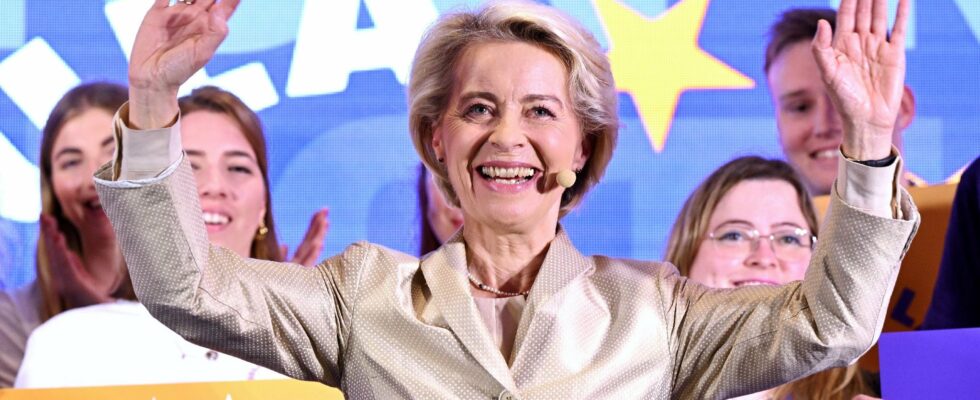No white smoke in Brussels! The Twenty-Seven will continue their negotiations with a view to a formal agreement at the end of June on key EU positions, after a first round of discussion on Monday at the end of which Ursula von der Leyen remained favorite for the “top job ” to the European Commission. “It was a good discussion. It goes in the right direction, I think, but there is no agreement at this stage,” admitted the President of the European Council Charles Michel, after a informal dinner of leaders of EU countries Monday evening in Brussels.
The Belgian official stressed, however, that a decision was in any case not expected before another summit of EU leaders on June 27-28 in Brussels. “It is our collective responsibility to make a decision by the end of June,” added Charles Michel. It has to simmer, I think we are not that far away,” judged French President Emmanuel Macron at the end of this meeting.
Leaders have increased their support for the reappointment of Ursula von der Leyen, 65, as head of the European Commission. The leading political force in the European Parliament, where it clearly strengthened following the June 6-9 vote, the European People’s Party (EPP, right), which supports Ursula von der Leyen, nevertheless sought to push its advantage during the talks, according to diplomatic sources.
The EPP’s demands then prevented the announcement of a global agreement also covering the other positions, that of president of the European Council and head of European diplomacy. The distribution must take into account the political balances in the EU following the European elections, but also geographical ones.
“No dead end”
“There is no impasse,” however, underlined Portuguese Prime Minister Luis Montenegro, like other European leaders, who are rather confident about the chances of a global agreement by the end of June.
After its victory in the European elections, the EPP claims to be head of the Brussels Commission, which it has held for around twenty years. The Social Democrats, who constitute the second group in the European Parliament, are for their part demanding the presidency of the European Council and the former Portuguese Prime Minister Antonio Costa is expected.
This 62-year-old socialist is the subject of an investigation for influence peddling which led to his resignation from the Portuguese government in November, but many diplomats believe that this is not an insurmountable obstacle, the suspicions against him seeming To dissipate.
According to diplomatic sources, the EPP however proposed on Monday that the presidency of the Council, a mandate of two and a half years renewable once, be shared during the legislature between the social democrats who would first obtain the position, before he moves to a conservative in two and a half years.
“Raising the stakes”
“With a strengthened position, the EPP is trying to raise the stakes,” explains a diplomat. The negotiators “agree on the three names. It is more a search for balance between the EPP” and the other political forces, including the socialists, who prevented an agreement on Monday, summarized another diplomatic source.
Also at stake, the post of High Representative for Foreign Affairs was until now occupied by the Spanish socialist Josep Borrell who is retiring at the age of 77. Estonian Prime Minister Kaja Kallas is well placed to succeed him. This 46-year-old liberal would be the only Eastern European among the holders of “top jobs”. The leader became known for her unwavering support for Ukraine in the war started by Russia, a country bordering Estonia.
She “understands the Ukrainian and Russian realities very well and she has a position identical to that of Poland”, underlined Polish Prime Minister Donald Tusk, giving her his support.
At the head of the European Parliament since January 2022, the Maltese Roberta Metsola (PPE), 45, should unless there is a surprise return, for a mandate of two and a half years. To be nominated, Ursula von der Leyen needs to collect a “qualified majority” of at least 15 countries, representing 65% of the European population.
If she is indeed chosen by the leaders, Ursula von der Leyen will then have to be dubbed by an absolute majority of 361 newly elected MEPs. In 2019, she was narrowly elected, with 9 votes in advance.
